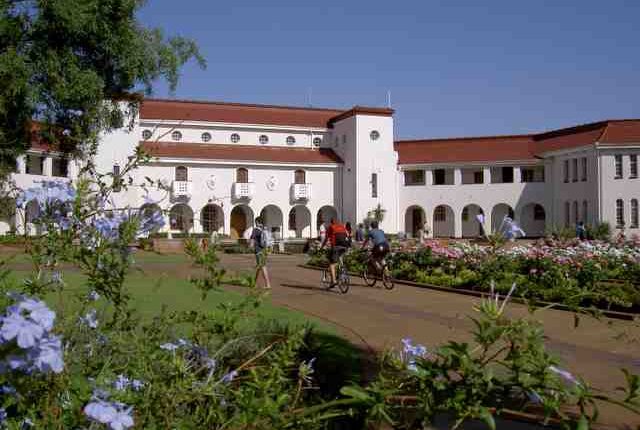North-West University: NWU Gender Awareness Week encourages getting comfortable with the uncomfortable
Gender Awareness Week (GAW) has become an integral part of the North-West University’s (NWU’s) strategy of promoting diversity and inclusivity among students, staff, and other stakeholders.
GAW takes place from 8 to 12 August 2022, with activities, sessions, and presentations focusing on creating awareness and discussing issues such as gender and identity in diverse contexts. This year’s theme centres around the arts.
According to Prof Conroy Cupido, GWA coordinator, the university has come a long way in recognising, embracing and celebrating gender diversity which refers to issues pertaining to women, men, non-binary individuals, as well as people of all sexual orientations.
“When I joined the NWU in 2011, the university was already taking steps to promote gender diversity, although it was still very taboo to discuss – especially in residences, among students and in some faculties,” says Prof Cupido.
“A sense of awkwardness can still be sensed in some circles, which is why an initiative such as Gender Awareness Week is so crucial. I can only hope that an initiative such as this will provide a safe space where people can discuss things they may be uncomfortable with,” he adds.
Respectful discourse is always important when people speak about topics or issues that they are passionate about says Prof Cupido. “Discussions of this nature often become heated or emotional, so it is always important to consider someone else’s perspective. To understand why we feel the way we do about a subject, it is important to ask ourselves if we are projecting our feelings onto others.”
Prof Cupido emphasises that it is also crucial that people listen to each other’s experiences, an ability he believes we have lost. “The key to understand someone’s message is to take the time to understand and interpret what they are trying to say, rather than just giving or formulating a response without taking the time to understand and interpret the message. Sometimes we just need to listen with an empathetic ear to someone else’s lived experience,” adds Prof Cupido.
To grasp the full scope of this issue, the university needs to address the issue of how many of its LGBTQI students express not feeling safe while on campus. “It feels unsafe for them to discuss aspects of their identity, their relationships or their gender for example. In previous years we have focused on issues facing our lesbian, gay and bisexual students, this year we received a huge outcry from students to focus on issues faced by queer students, such as non-binary or trans students,” adds Prof Cupido.
“Through the planned activities, sessions and presentations during Gender Awareness Week we aim to take cognisance of this and to focus on a few of these issues.
“In a time where violence against women and the LGBTQIA+ community in South Africa is rife and students and staff are still marginalised, I am grateful for the platform that GAW provides to highlight these issues. I am reminded of NWU student Bobby Motlatla and colleague Sam Junior Mbatha who both senselessly and tragically lost their lives in 2015 and in 2021 respectively. Until these atrocities do not occur anymore, it remains of the utmost importance that leaders among students and staff shape a more inclusive and socially just institution and society,” he says.
Prof Cupido says thus far the week has been a great success. “I think people are excited to interact in person again and will enjoy performances by, among others, the NWU Symphony Orchestra and the NWU PUK-Choir.
“The coordination of the GAW week took a lot of planning and hard work, and I would like to thank all the faculties, organisations and stakeholders involved in making it a success. I am proud of what the initiative has accomplished so far, and I look forward to what the future holds,” concludes Prof Cupido.

